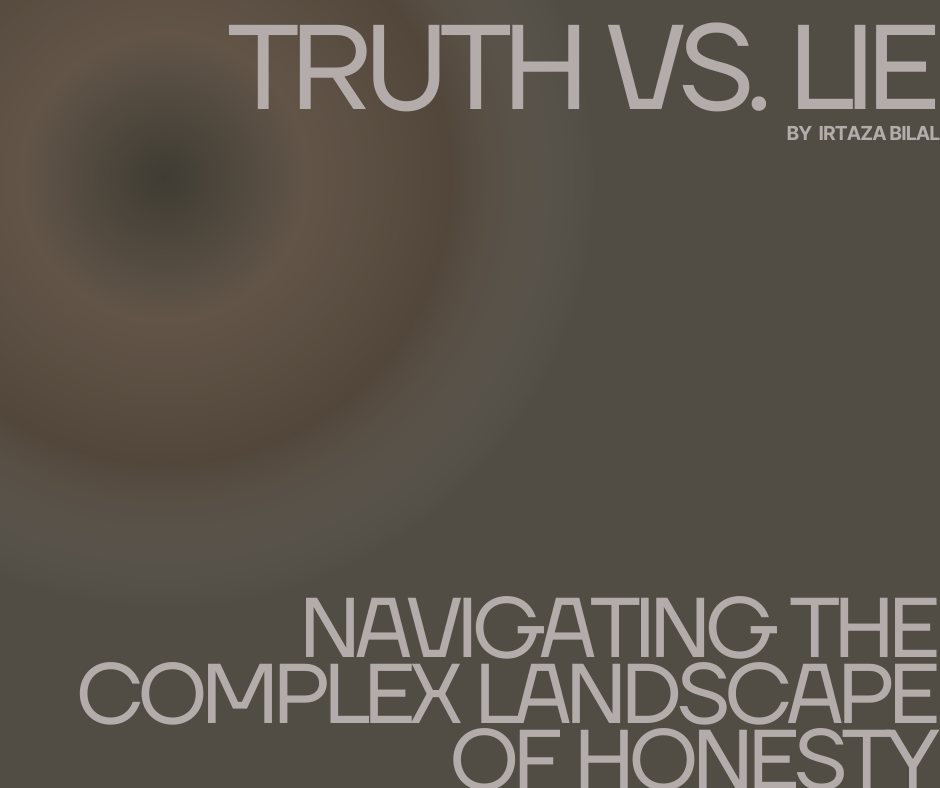In a world filled with information and communication, the concept of truth versus lies has become increasingly relevant. Therefore, From personal relationships to politics, from social media to science, the battle between truth and falsehood rages on. In this blog, we’ll explore the importance of truth, the consequences of lies, and how we can navigate this complex landscape.
The Power of Truth
Truth vs. Lie: Navigating the Complex Landscape of Honesty. Truth is the cornerstone of trust and integrity. However, It forms the basis of our interactions, allowing us to connect on a deep and meaningful level with others. Here are a few reasons why truth is so powerful:
- Trust and Credibility
Honesty is the foundation of trust. When we tell the truth, we build credibility with others. Whether it’s in our personal or professional lives, Furthermore, people are more likely to believe and respect us when they know we’re truthful.
- Authentic Relationships
Further, Truthfulness fosters authentic and healthy relationships. Open and honest communication helps us understand each other better, resolve conflicts, and grow as individuals.
- Personal Growth
Accepting the truth, even when it’s uncomfortable, is crucial for personal growth. It allows us to recognize our mistakes, Besides this, learn from them, and make positive changes in our lives.
The Consequences of Lies
While the truth empowers, lies have the potential to harm. Additionally, Lies can come in various forms, from small white lies to elaborate deceptions, and they can have profound consequences:
- Erosion of Trust
Lies erode trust over time. When someone is caught in a lie, it can be challenging to rebuild trust, and relationships may suffer irreparable damage.
- Stress and Anxiety
Truth vs. Lie Navigating the Complex Landscape of Honesty. Lying often leads to stress and anxiety. In Addition, Keeping up with falsehoods can be mentally exhausting and emotionally draining.
- Damage to Reputation
In the age of the internet, lies can quickly spread and tarnish reputations. False information can be shared widely, causing lasting harm to individuals and organizations.
Navigating the Complex Landscape
In today’s world, navigating the complex landscape of truth and lies requires vigilance and critical thinking. Here are some strategies to help you distinguish between the two:
- Verify Information
Before accepting information as truth, fact-check it. Moreover, In an era of fake news and misinformation, it’s essential to verify the accuracy of claims before spreading them.
- Critical Thinking
Develop critical thinking skills to evaluate the credibility of sources and the logic of arguments. Be wary of emotional manipulation and biased information.
- Encourage Open Communication
Promote open and honest communication in your personal and professional relationships. Create an environment where truth is valued and safe to express.
- Self-Reflection
Regularly engage in self-reflection and introspection. So, Are you being truthful with yourself and others? Are there areas of your life where you could be more honest?
- Consequences of Lies
Consider the potential consequences of lying. Is the short-term gain worth the long-term damage to trust and relationships?
Conclusion
Additionally, In the battle between truth and lies, truth ultimately prevails as the foundation of a just and ethical society. By valuing honesty, fact-checking information, and promoting open communication, we can contribute to a world where the truth is cherished, and lies have no place. Therefore, Let’s work together to make #TruthMatters and #HonestyIsKey the guiding principles in our lives.
Remember, the power of truth lies within you, waiting to be harnessed for the betterment of yourself and the world around you.

